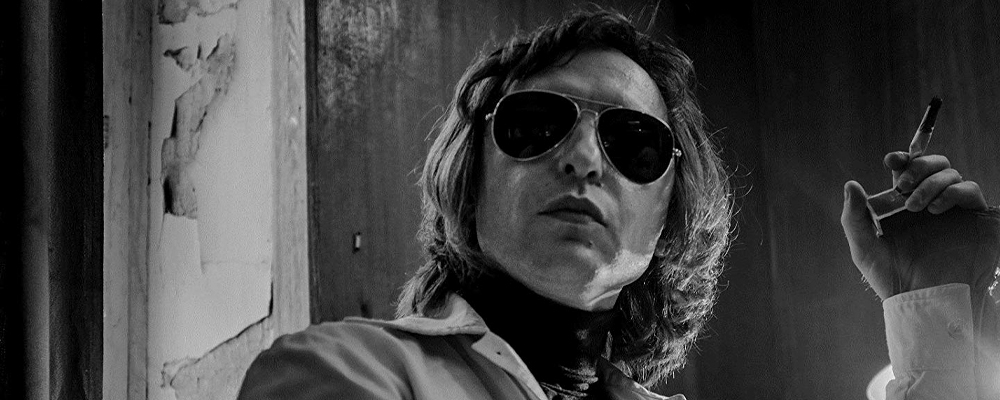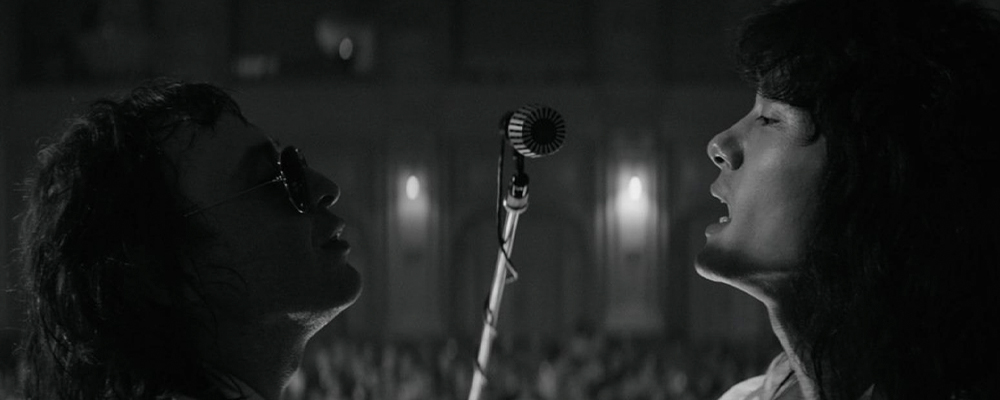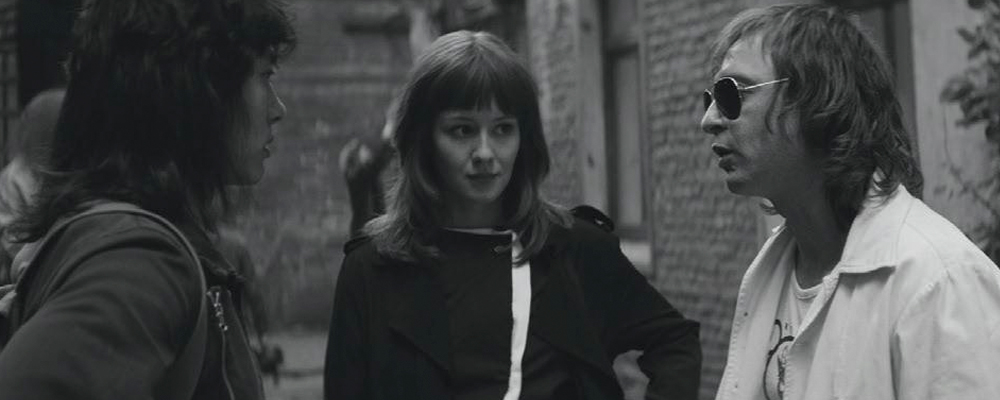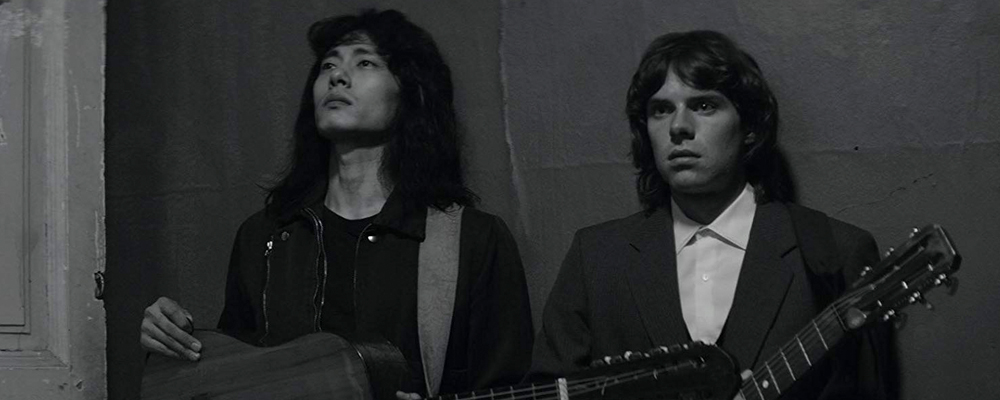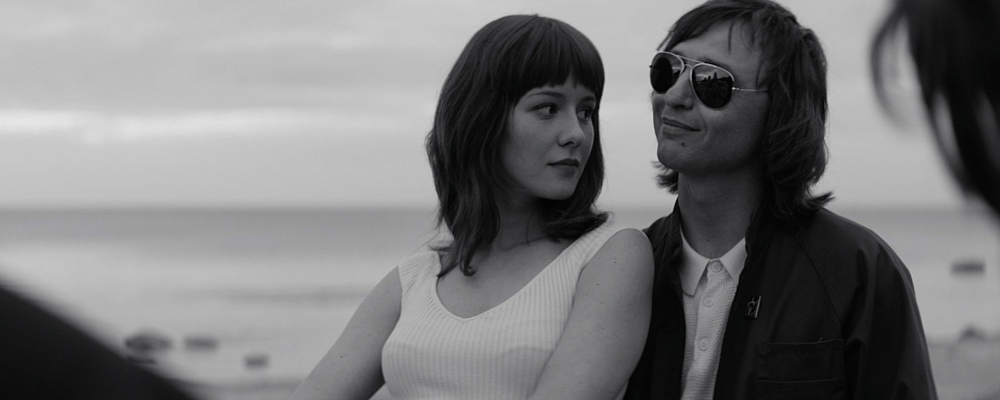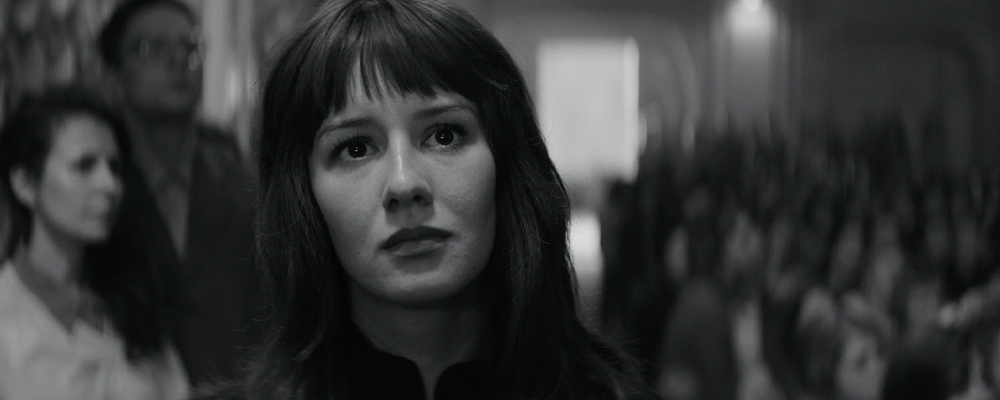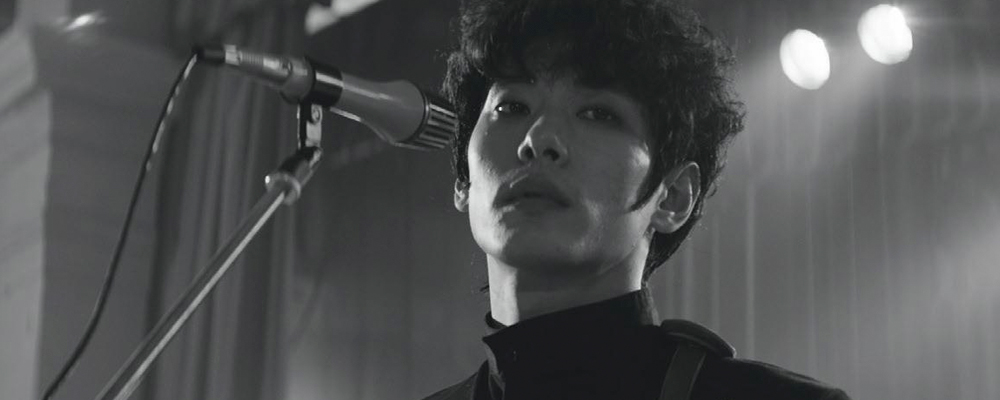‘Leto’ Is a Striking Account of Leningrad’s Undergound ’80s Rock Scene Under Soviet Rule
Sandra Miska
The names Viktor Tsoi and Mike Naumenko may not sound familiar to the average American, but these two Russian rockers are remembered as legends in their homeland much in the same way the likes of John Lennon and Kurt Cobain are in the Western world. Thanks to the offbeat musical biopic “Leto,” international audiences will finally hear the stories of Viktor Tsoi (Teo Yoo) of Kino, and Mike Naumenko (Roman Bilyk) of Zoopark, the frontmen of two of the most influential bands in Russian rock history, who forged a unique relationship while coming up together in the Leningrad rock scene during the final years of the Soviet Union.
“Leto” was written by Mikhail Idov and Lili Idova. For an entry point, Idov and Idova used the memoirs of Naumenko’s wife, Natalia, who is renamed Natasha (Irina Starshenbaum) in the film. While the pair admitted to having some doubts about the authenticity of the memoirs, they found them to be inspiring nonetheless.
Teo, Mikhail and Lili also spoke with Entertainment Voice, discussing the film, writing choices, director Kirill Serebrennikov’s shocking arrest during production, and why they didn’t want their film to come out like a certain recent Freddie Mercury biopic.
“Lili and I grew up listening to this music, Kino, Victor’s band more so than Mike’s music,” said Idov. “We wouldn’t know how to do a conventional biopic about Tsoi, because he was such a closed-off character.”
While Yoo was somewhat familiar with Tsoi, whose father was Soviet-Korean, he revealed to Entertainment Voice that he had never been to Russia until it came time for him to audition in Moscow. Yoo, a Korean-German who studied acting in NYC, explained how another’s actor voice was dubbed in to match Tsoi’s distinct tone, but he still had to learn the Russian dialogue, a language in which he was not at all fluent. “I had to speak Russian on set and learn everything phonetically. I had about three weeks, and the production provided me with a speech coach. I practiced after I arrived in Russia.”
Over the course of the film, the relationship between Mike and Victor slowly changes as Mike comes to recognize Victor’s superior talent. Said Idov, “At the moment where it could turn into like something like ‘The Favorite,’ instead of becoming rivals, he sort of almost sacrifices himself and his career and basically just accepts the role of the tutor to Victor. And we thought it was such a beautiful idea, regardless of whether it is true or not.”
In many ways, Mike is a pretty passive character, and even when Natasha makes known to him her desire to kiss Victor, he reacts with indifference. A playful, amorous friendship develops between Natasha and Viktor. While Mike is somewhat withdrawn when it comes to family life, Viktor is happy to help Natasha bathe their baby and run errands, and one cannot help but wonder if his extra zest for life is what ultimately makes Viktor shines the brightest.
“On a personal level, I’m probably more like Mike,” Yoo said with a laugh. “I think I have more of a guiding quality towards my friends and the people around me.”
Yoo and Starshenbaum have a natural onscreen attraction between them, and Yoo recalled how she put him at ease when he felt self-conscious for being a non-Russian speaker. “As a person, she’s a sweetheart, so it wasn’t really hard to have good chemistry and relate to her as a person [like my character would]. Also, Kirill, our director provided an environment that was very welcoming and warm. He had an eighties Russian apartment welcoming party. It was nice.”
“Leto” differs from most films set in the Soviet era, as it has a hopeful feel; it contains very little of the bleakness that most in the West associate with the USSR. It’s not as if Viktor, Mike, Natasha and their friends live in a bubble, they just choose to embrace music and other small pleasures. In one particularly charming scene, Viktor helps Natasha precure an exquisite cup of coffee for Mike.
Idov explained how they wanted to make a light film without glossing over the harshness of life in the late Soviet period. “They tried to escape their reality through music, and we escape it with them. It was interesting balancing act to try and indulge them in their escape but also occasionally throw in reminders of what real life was like for them.”
Those reminders include having a musician in their circle suddenly being drafted into the Soviet-Afghan War. There’s also the censorship at the Leningrad Rock Club, which Mike finds a clever way to get around.
“Leto” is at its most fun and life-affirming during the fantastical musical sequences in which the characters collectively break into song and dance to songs such as “Psycho Killer” by Talking Heads and Iggy Pop’s “The Passenger.” According to Idov, these sequences were not in the original screenplay, but were later added in by Serebrennikov, who also handpicked the songs.
“It’s funny, because Kirill first asked me to put together a playlist, and I did. My hipster side took the better of me. I tried to put in the songs that weren’t quite as famous. I put in everybody’s twentieth most famous songs.”
He concedes that Serebrennikov ultimately made the correct choice by putting in songs to which the general public, and Russians in particular, have more emotional attachments. “This was probably the only area where I felt like we had bit of a disagreement, but now that I watch the movie, I realize that he was right to use these absolutely timeless songs… This was not really the time for us to make a cool mixtape [laughs].”
Yoo revealed that his favorite scene in the film was the one in which Viktor and Natasha find themselves on a bus on which their fellow riders break out into “The Passenger.” He admitted that he was so preoccupied with character preparations that he didn’t immediately make sense of other aspects of the screenplay.
“I didn’t understand the translation of the Russian script for those segments. I thought the music playing over us was more of a background music type of soundtrack. I didn’t know it would turn out to be a music video or a musical piece. I realized it on set. You have to be flexible in those situations. It was fun in that moment. I realized, ‘This is what they want.’ I knew there was a romantic quality to it.”
In a shocking turn of events, near the end of the filming of “Leto,” Serebrennikov was was detained by the Investigative Committee of Russia and put on house arrest. Idova recounted how she and Idov were on set with him the evening before his arrest. “The project was coming together and we had only five days of filming left. It was an absolutely complete shock to everybody that it happened.”
“Everything that was done after Kirill’s arrest was still very much to Kirill’s specifications,” added Idov. This included the aforementioned “The Passenger” scene. “Basically everyone in this scene is acting knowing that the director of the film has just been arrested for no reason.”
Yoo was more directly impacted by Serebrennikov arrest. “It was devastating in two ways,” he explained. “First of all, it was really hard on the production, obviously. You have to understand, I was born and raised in Europe and I’m a working actor out of Korea right now. I was just a guest in Russia. I didn’t know what was going on. They just told me on the day of the arrest that I should stay in my hotel. I tried to sneak out and run away from the Russian paparazzi. I didn’t know how much of an issue it was.”
Yoo opened up about what he was feeling while the production was in limbo. “At that time it was very painful, and it cost a lot of energy. For me, selfishly speaking, I felt like I had to chance to shine as a leading actor for the first time, and this chance is going to be taken away from me, but fortunately the producers decided to continue shooting, so I put that much more effort into it.”
Idova revealed that Serebrennikov is not out of the woods even today. “He’s still under investigation. He can’t leave Russia until the charges are dropped.”
Serebrennikov’s situation meant he couldn’t be there at the 2018 Cannes Film Festival for the premiere of “Leto.”
“I felt more of a responsibility to go there and promote the film in the cause of freedom of speech and for the arts, rather than being there as just an actor and enjoying myself,” recalled Yoo. “We all went there because of our director, and he wasn’t there. It was bittersweet.”
“Leto” stops short of showing Viktor and Mike achieving stardom. Idov explained why he and Idova decided to end the story where they did.
“The movie is potentially about this unique love triangle, and the movie ends when this love triangle is resolved… Of course, there is way to make a Viktor Tsoi biopic that would look like ‘Bohemian Rhapsody,’ one that would culminate with Kino playing at Moscow’s Olympic Stadium like they did in 1990 with the fireworks and all that. But this is not that movie. I would love to watch that movie, but somebody else needs to write and direct it.”
“Leto” opens June 7 in New York, June 21 in Los Angeles.

